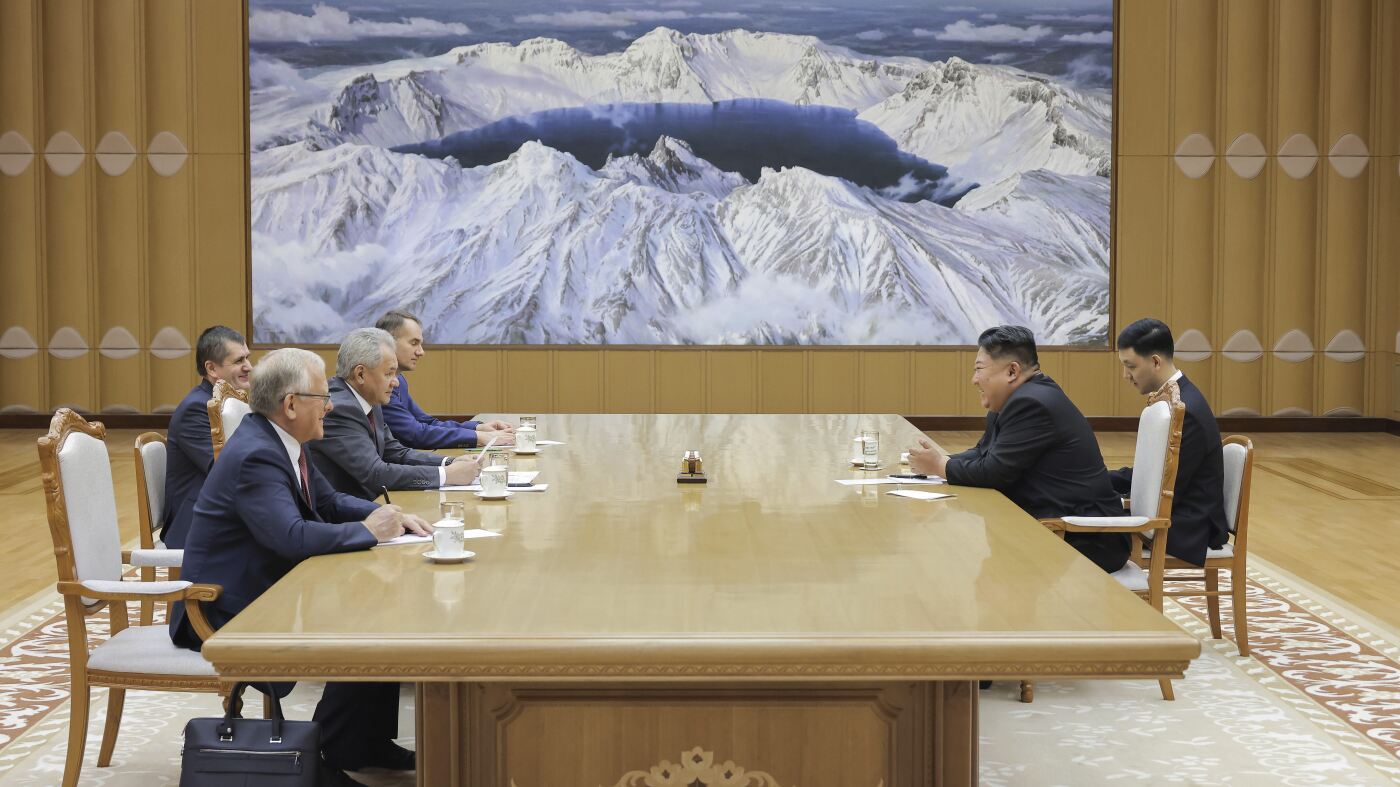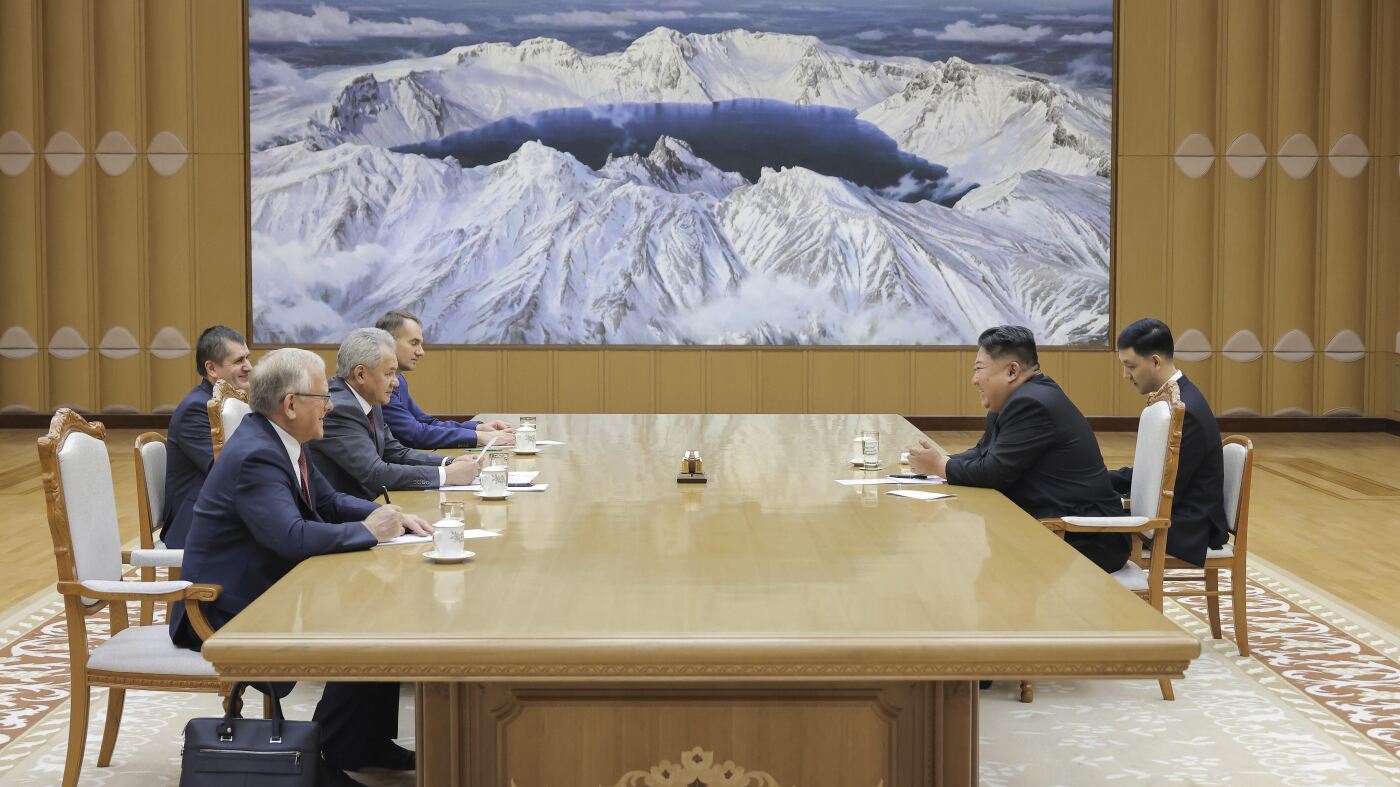A Deepening Alliance: North Korea’s Labor and Military Support for Russia
The geopolitical landscape is witnessing a profound shift as North Korea and Russia fortify their alliance. This evolution, marked by North Korea’s pledge to send thousands of military construction workers and deminers to Russia, signifies a deepening cooperation that extends beyond mere diplomatic gestures. The Kursk region, a strategic hotspot, has emerged as the focal point of this burgeoning partnership, reflecting both nations’ strategic interests and the potential repercussions for global security.
Expanding Military and Labor Contributions
At the heart of this alliance lies a substantial commitment of manpower. North Korea’s plan to dispatch approximately 5,000 military construction workers and 1,000 deminers to the Kursk region is a bold move that underscores the growing synergy between the two countries. The choice of military construction workers over civilian laborers is telling, indicating a priority on efficiency and security in reconstruction efforts. This deployment is not an isolated event but part of a broader pattern of support that North Korea has been providing to Russia’s war efforts in Ukraine.
Intelligence assessments, particularly from South Korea’s National Intelligence Service (NIS), reveal that North Korea has already sent around 15,000 laborers to Russia under bilateral industrial cooperation programs. This initial phase included the provision of combat troops and conventional weapons, highlighting a deliberate strategy to bolster Russia’s military capabilities. The escalating pattern of support suggests a calculated effort by North Korea to deepen its involvement in Russian affairs, driven by economic and strategic motivations.
The Kursk Region: A Strategic Focus
The Kursk region, a critical area bordering Ukraine, has become the epicenter of this alliance. The region’s significance lies in its strategic location and the ongoing conflict that has left it in need of reconstruction. The deployment of deminers is particularly crucial, given the potential for landmines and unexploded ordnance, which pose threats to both civilian populations and military operations. Reconstruction efforts in Kursk are likely aimed at repairing infrastructure, reinforcing defensive positions, and improving logistical capabilities for Russian forces.
Motivations and Implications
The motivations behind North Korea’s support for Russia are multifaceted. Economically, Russia represents a vital lifeline for North Korea, especially in the face of stringent international sanctions. Russia’s willingness to overlook these sanctions and provide economic assistance is a powerful incentive for North Korea to deepen its relationship. Strategically, the alliance offers North Korea a counterweight to the United States and its allies, providing a shield against potential pressure from Washington and Seoul.
For Russia, North Korea provides a reliable source of manpower and weaponry, helping to offset losses sustained in Ukraine and circumvent international arms embargoes. However, this alliance also carries risks. Increased cooperation could lead to further sanctions against both nations and potentially escalate tensions in the region. The involvement of North Korean military personnel in reconstruction efforts, even if ostensibly civilian in nature, blurs the lines of international law and could be viewed as a violation of UN Security Council resolutions.
The Labor Dynamic: A Modern Form of Exploitation?
The deployment of North Korean laborers raises serious concerns about potential exploitation. Historically, North Korean workers sent abroad have faced harsh working conditions, limited freedoms, and significant financial exploitation. While the current arrangement involves military personnel, the underlying dynamics of control and financial benefit likely remain similar. These workers are essentially deployed as a state-sponsored workforce, with limited agency and significant financial contributions directed back to Pyongyang. This practice effectively circumvents international sanctions aimed at limiting North Korea’s access to foreign currency, bolstering the regime’s coffers at the expense of individual workers.
A Shifting Geopolitical Landscape
The deepening alliance between North Korea and Russia is reshaping the geopolitical landscape in Northeast Asia and beyond. It represents a challenge to the existing international order and underscores the growing willingness of both nations to defy international norms and pursue their strategic interests. The situation demands careful monitoring and a coordinated response from the international community to address the potential risks and mitigate the negative consequences of this evolving partnership. The continued flow of North Korean labor and military support to Russia is not merely a bilateral issue; it is a symptom of a broader trend towards increased geopolitical fragmentation and a challenge to the principles of international cooperation and security.
A Future Defined by Cooperation?
The current trajectory suggests a future characterized by increasingly close cooperation between North Korea and Russia. This partnership is likely to extend beyond military and labor exchanges, potentially encompassing increased trade, technological cooperation, and diplomatic coordination. The long-term consequences of this alliance remain uncertain, but it is clear that the relationship will play a significant role in shaping the future of regional and global security. The willingness of both nations to prioritize their strategic interests over international norms signals a potentially destabilizing trend that requires sustained attention and proactive engagement from the international community. The future of this alliance will undoubtedly shape the geopolitical landscape, demanding vigilant observation and strategic responses to navigate the complexities and challenges that lie ahead.








